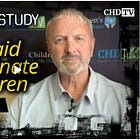What tragically happened to the two-year-old identical twin boys in the video above, who apparently developed severe regressive autism right after receiving multiple vaccines at a four-month well-baby visit to their pediatrician?
Their parents say, “The shots froze them in time,” and agree their sons’ “lives are destroyed.”
Without vaccination, the probability of both twins independently developing a debilitating brain injury on the same day is less than 1 in 27.7 million.
Autism prevalence and age of onset
Cross River Therapy says:
Autism Spectrum Disorder (ASD) is a complex developmental disorder that affects communication, social interaction, and behavior.
According to the Centers for Disease Control and Prevention (CDC), approximately 1 in 36 children in the United States has been diagnosed with ASD.
[And] most children with autism are diagnosed by the age of four, indicating that the disorder likely has its roots in early brain development.
Genes and autism
Sharing identical genes, the twins in the video might be more genetically susceptible to autism than other children are.
The website autismspeaks.org says:
Research tells us that autism tends to run in families, and a meta-analysis of 7 twin studies claim that 60 to 90% of the risk for autism comes from your genome.
If you have a child with autism, you are more likely to have another autistic child. Your other family members are also more likely to have a child with ASD.
Changes in certain genes or your genome increase the risk that a child will develop autism.
If a parent carries one or more of these gene changes, they may get passed to a child (even if the parent does not have autism).
For some people, a high risk for ASD can be associated with a genetic disorder, such as Rett syndrome or fragile X syndrome.
For the majority of autism, multiple changes in other regions of your DNA increase the risk of autism spectrum disorder.
The majority of these DNA changes do not cause autism by themselves but work in conjunction with many other genes and environmental factors to cause autism.
Chances vaccines are unrelated
Let’s make some generous assumptions favoring the idea vaccines did not play a role in these boys’ brain damage:
Let’s assume the twins’ genetic risk of autism is 1 in 3.6, ten times greater than the average risk of 1 in 36 children as reported by the CDC.
We’ll assume if a child is to become autistic, it will happen by age four if ever. This is 4 years x 365 days/year, plus one leap year day = 1,461 days.
We’ll also assume any other potential environmental trigger for autism occurring after birth is evenly distributed across time. This is a safe assumption because the National Institute of Environmental Health Sciences tells us environmental influences for autism risk exist mainly before or at birth:
Advanced parental age
Prenatal exposure to air pollution or certain pesticides
Maternal obesity, diabetes, or immune system disorders
Extreme prematurity or very low birth weight
Birth complications leading to periods of oxygen deprivation to the baby’s brain
Real risk bigger
The actual risk of autism is almost certainly higher than the above three assumptions permit, because (a) some autistic children are not registered in the CDC database, so autism prevalence could be higher than CDC’s reported 1 in 36; and (b) some children develop autism after age four but are excluded from our assumptions.
Calculating odds
If vaccines don’t increase the risk of autism, then the probability a child will develop autism on any given day by age four should be the same as on any other day during that period and unrelated to vaccination days.
So for a child who will develop autism by age four, the probability of its onset occurring on any particular day during this period is 1 in 1,461.
Therefore, the probability either of these twins would become autistic on any certain day by age four should be 1/3.6 x 1/1,461 = 0.00019 or 1 in 5,260.
And the probability of both twins developing autism on the same day is 1/5,260 x 1/5,260 = 0.0000000361 or 1 in 27.7 million.
Yet we’re asked to believe it’s a total coincidence both these boys’ lives were wrecked on the same day, right after they received multiple shots.
Autismspeaks.org tells us:
Vaccines do not cause autism. It is possible that the timing of an autism diagnosis might coincide with the recommended vaccine schedule for children and adolescents.
But scientists have conducted extensive research over the last two decades to determine there is no link between childhood vaccinations and autism.
The results of this research is clear: Vaccines do not cause autism.
Additionally, vaccination can protect children from many preventable diseases like measles.
The American Academy of Pediatrics has compiled a comprehensive list of this research.
“The injections have nothing to do with it!” we’re told. “Now wake up and go to sleep.”
That people accept this idea might explain why many buy lottery tickets with less than a one-in-28-million chance of winning and think, “I’ll surely win this time! It’s my lucky day!”
Support through Ko-Fi or Buy Me a Coffee.















Share this post